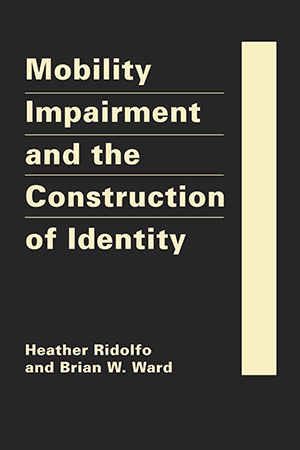
- 2013/188 pages
- Disability in Society
A FirstForumPress Book
Mobility Impairment and the Construction of Identity
Hardcover: $25.00
ISBN: 978-1-935049-57-9
Ebook: $25.00
ISBN: 978-1-935049-96-8
Heather Ridolfo and Brian Ward explore the experiences of people with impaired mobility, enhancing our understanding of why some embrace a disabled identity, why others reject it, and the personal and societal implications of both choices.
Drawing on a combination of intimate interviews and statistical data, the authors unpack the ways that physical and social barriers shape personal ideas of disability. They also highlight the impact of interlocking factors such as age, race, gender, and economic class. Their work provides important new insights, relevant to theory as well as policy and practice.
Drawing on a combination of intimate interviews and statistical data, the authors unpack the ways that physical and social barriers shape personal ideas of disability. They also highlight the impact of interlocking factors such as age, race, gender, and economic class. Their work provides important new insights, relevant to theory as well as policy and practice.







